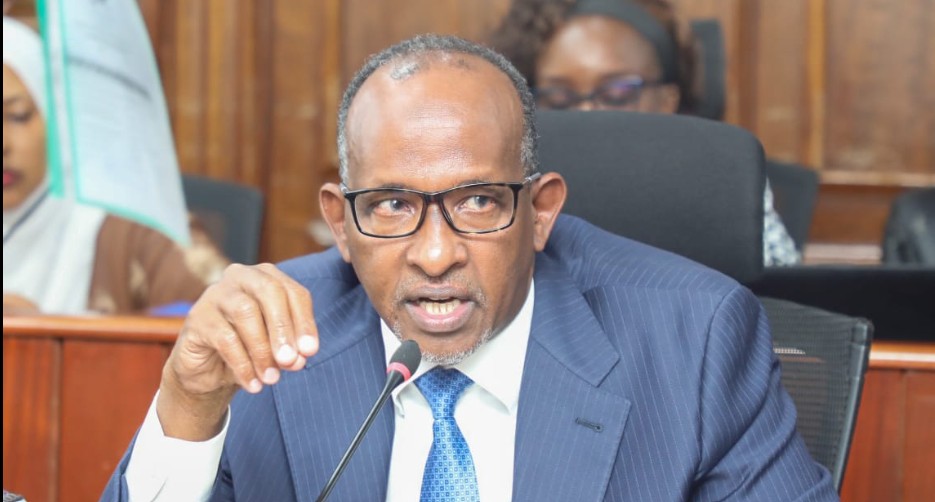SHA faces Sh30 billion backlog despite Sh81 billion collected since inception

Mwangangi noted that despite the achievements, the Authority still faces a backlog of Sh30 billion in pending bills inherited from the defunct National Health Insurance Fund (NHIF).
The Social Health Insurance Fund (SHIF) has collected Sh81 billion since its launch in October 2024, covering 3.6 million formal sector workers, nearly one million informal sector members, and 500,000 vulnerable households, according to Social Health Authority (SHA) CEO Mercy Mwangangi.
She spoke during a meeting with the National Assembly Health Committee, private healthcare providers and the Kenya Private Sector Alliance (KEPSA) during the 8th Speaker’s Roundtable (SRT) in Mombasa.
More To Read
- DCI forwards 18 SHA fraud cases to ODPP with 24 suspects charged
- KNCHR says Kenyans still locked out of healthcare despite Sh138 billion SHA boost
- MPs ditch SHA, the public health scheme they once praised, and opt for private cover
- How Trump–Ruto health deal fills the void left after USAID exit
- MPs demand SHA clears Sh10 billion in pending NHIF bills within three months
- SHA transition sparks tension as teachers cite lack of consultation, legal violations
Mwangangi noted that despite the achievements, the Authority still faces a backlog of Sh30 billion in pending bills inherited from the defunct National Health Insurance Fund (NHIF).
The session, chaired by Health Committee Chairperson James Nyikal, focused on operational and financial challenges hindering the SHA, particularly delays in provider payments and claims processing.
Private health providers highlighted the claims process as their greatest concern, noting the risk of being suspended for up to 90 days on allegations of fraud before being heard. They proposed introducing financial penalties similar to the banking and insurance sectors to replace immediate suspension for financial improprieties.
In response, Mwangangi explained that SHA plans to introduce an agency model designed to ensure claims are settled on a monthly cycle, a significant improvement over the current slower timelines.
“SHA currently has 815 employees and is looking to implement an agency model to engage informal sector players such as those in the Kenya Tea Development Agency (KTDA). The initiative aims to increase claims processing speed to a monthly cycle,” she said.
Committee members also raised several pressing issues with Moyale MP Waqo Jaldesa questioning the disparity in contribution requirements for informal sector members.
“The self-employed are being forced to make lump-sum contributions of four months up to a year, unlike the monthly payments made by the formally employed,” he said.
Kisumu Central MP Joshua Oron pressed whether regulatory bodies, including the Kenya Medical Practitioners and Dentists Council (KMPDC) and county governments, are adequately prepared for hospital onboarding.
“Does KMPDC have the capacity to inspect and onboard health facilities for licensing and registration to SHA?” he posed.
Mwea MP Mary Maingi stressed the need to expand collection points and develop a viable strategy to attract more Kenyans, arguing that current funding is “not sustainable.”
She also urged that the inherited NHIF pending bills be cleared without delay.
Kilgoris MP Julius Sunkuli encouraged private healthcare providers and SHA representatives to introduce legislation to close legal loopholes and strengthen SHA operationalisation, while Endebess MP Robert Pukose attested to challenges observed during hospital visits across the country.
The stakeholders agreed to develop detailed proposals, including necessary legislative amendments, to resolve bottlenecks and create an evidence-based advocacy roadmap for parliamentary approval.
Chairperson Nyikal called for the formulation of a “Cost of Care Bill” to manage healthcare costs nationally and urged the private sector to submit robust policy proposals for parliamentary action.
He reaffirmed the committee’s commitment to ensuring the full operationalisation of the Authority, describing it as the “most important financial restructuring of the health sector.”
Top Stories Today











































